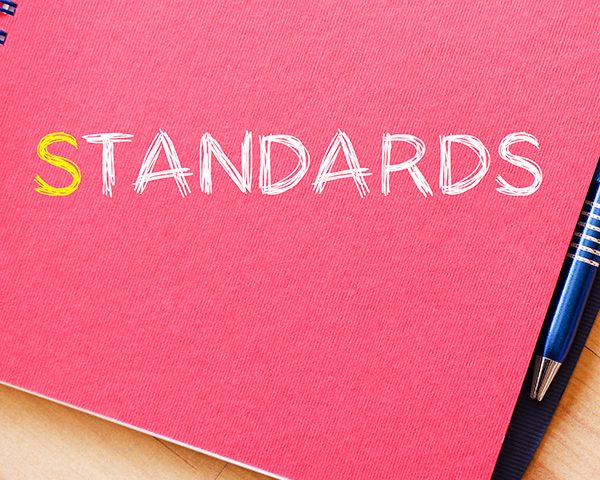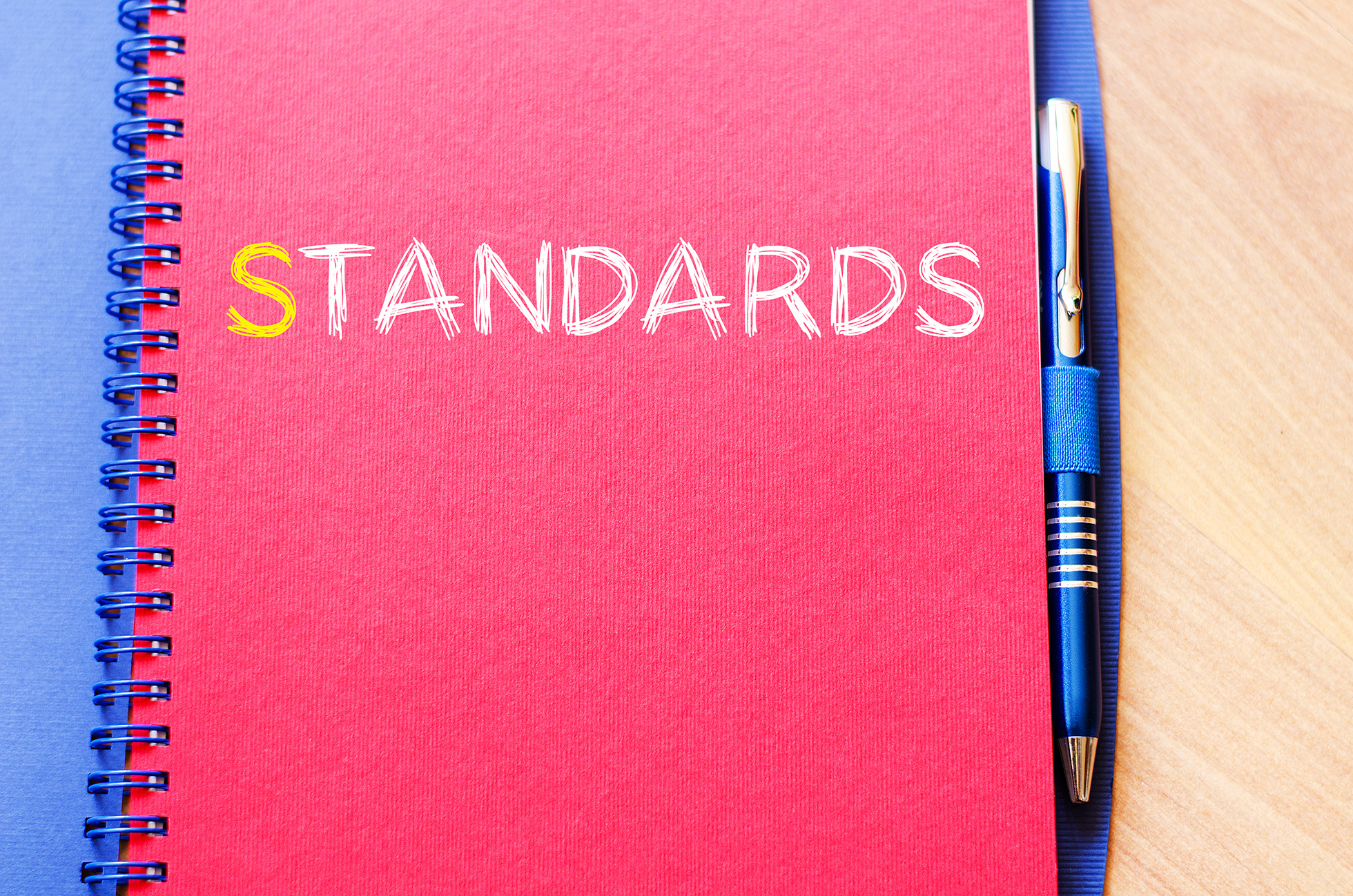Standards – promoting or preventing professional development?

Teacher Educators’ challenge to remain current to support others in their development
May 25, 2019
Self-Study Research in Europe
June 10, 2019Introduction
One of the major quantum leaps in teaching and teacher education in the last 50 years is, in my opinion, related to what Cochran-Smith (2004) calls the learning focus period which took place between 1980–2000. Teacher education focused mainly on developing teachers’ critical reflections on theory, practical skills, and teaching experience, to prepare them to make independent, situated decisions in the classroom. Teachers were encouraged to engage in systematic reflection such as action research, self-documentation of professional competence in teacher portfolios, and to participate in professional dialogues with academic teacher education institutions. The focus was on teachers’ personal professional development and growth.
However, as Cochran-Smith already in 2004 pointed out, we are currently witnessing a new policy-focused era driven by outcomes and standards. In this blog I warn against blindly and uncritically jumping on the bandwagon of standards, including standards for teachers and teacher educators. In the following teachers includes both professional groups.
Standards
In my definition of standards, I draw upon Sachs’ work (2003), when defining a standard as a theoretical principle without reference to the particulars of a person or a context, and standards define a cumulative body of knowledge and set of competences. In a way, we can say that standards inform about what is important and are general achievement goals for all without specific consideration of personal differences and preferences.
Standards reflect the core knowledge and skills required of teachers and teacher educators, and assessment, often for accountability purposes, is carried out in relation to expressed standards. In summative assessment of teaching, standards serve decision-making purposes such as licensing and certification, and hiring or firing teachers. Culpan (2017) claims that “The minimisation of teaching to specific descriptors in the NZ and Australian graduating teacher standards seems to be counter intuitive to the recognition that teaching is a complex undertaking” (p. 87).
Why Have Standards Become So Popular?
The main reason for introducing standards is the demand for accountability from stakeholders’ side. Accountability is “part of the lexicon of politics and institutions” (Lee, Smith & Fey, 2000, p. 334), and it “involves the requirement that one group provide an account or justification of its activities to another group in return for trust and privileges granted to the former by the latter” (Sachs, 2003, p. 177). In an educational context it means that schools and the education system at large provide evidence to stakeholders (parents, society, politicians) of the way the stakeholder’s investment is spent and explicit goals achieved. In education, explicit goals are usually expressed as standards to be achieved. Standards have become the focal point of education, and worryingly, achieving the standards have become its main concern.
How Can Standards Support Professional Development?
It would be unwise to neglect the many apparent advantages standards bring into education. First of all, standards serve as agreements about what is important in education, they point to a common core of knowledge and skills learners are expected to achieve. Additionally, standards serve as guidelines for teachers in carrying out their tasks and can serve as a means of communication between the educational system and the public. Published standards allow for accountability and public criticism, which is likely to trigger a public and professional debate about what is important.
For formative assessment purposes, standards guide teachers’ professional development (Koster & Dengerink, 2001; Smith, 2005). Standards can also be a tool for approving teacher education programs (Spolsky et al. 2002) and for communicating goals of to the public (Apple, 2001). Moreover, standards are an essential part of any assessment activity. It is necessary to assess performance in relation to something, to the commonly agreed core of knowledge, to expressed standards.
How Can Standards Hinder Professional Development?
Clearly expressed standards are essential in designing the construct of good teaching, and they are a must when evaluating teaching. Some researchers, however, have warned against overuse of and reliance on standards (Apple, 2001; Burroughs, 2001; Delandshere & Arens, 2003; Murray, 2001). Murray points out that there is no consensus regarding standards. Standards can easily narrow the view of teaching and learning (Cochran-Smith, 2001, 2008) and limit new initiatives and introduction of new ideas. When education becomes market oriented (Apple, 2001) and focuses mainly on outputs (Cochran-Smith, 2001, 2008), the importance of affective aspects of teaching will diminish. Moreover, teachers engage in work-based learning, which accumulates to a large extent in private tacit knowledge and experience, also called working knowledge, practical or craft knowledge (Marland, 2001; Tyrijälä, 2008). It is difficult, if not impossible, to articulate this type of teachers’ professional knowledge in terms of general standards. Teachers exercise good teaching within a specific context, and what is suitable in one specific teaching situation is not necessarily suitable in other contexts (Smith, 2005).
How Can Standards Strike a Balance in Professional Development?
Crook (2003) has listed several conditions for intelligent use of accountability that differs from current practice in many places. Intelligent use of standards initiates deep changes within a person or a system, in contradiction to top-down implemented instructions of change. The latter is likely to invite cosmetic, declarative changes. Proper use of standards leads to informative feedback essential to teachers, and this feedback will result in increased enthusiasm and motivation. For Crooks’s conditions to be met, the following points should be taken into consideration:
- Standards need to be open enough to serve as guidelines and not as lists of skills or pieces of knowledge. The formulation of standards must be general enough to leave room for personal interpretations and professional freedom for teachers. If not, teaching becomes technical.
- Standards need to allow for differences. Teachers differ, and educational contexts differ. We cannot apply the same standards in all settings.
- Standards need to serve formative as well as summative evaluation purposes. Assessment based on standards is to be shared with teachers in a nonthreatening way.
- Standards need to be constantly revisited and updated. Standards need to be dynamic, to be frequently revisited to examine their relevance to the present and future needs of society.
All stakeholders need to be well informed about the standards. Transparency is the keyword in relation to setting standards and working with standards in an educational system.
Support and alternatives need to be offered when standards are not met. When standards are not met, teachers need to be supported in finding alternative routes to achieve the standards. Punishment by removing their financial and professional rewards will not lead to improvement. Summative evaluation (decision making) cannot be based on achievements of standards only. When assessing the quality of teaching, there is more to it than what can be expressed by standards.
The big questions are:
 Are standards a threat to the essential qualities of professionalism constraining professional development, particularly because they are often associated with narrowly defined and easily measurable attributes? Can we create a standardised frameworks that defines professionalism much more broadly to reflect fundamental professional values and commitments in ways which facilitate professional development?
Are standards a threat to the essential qualities of professionalism constraining professional development, particularly because they are often associated with narrowly defined and easily measurable attributes? Can we create a standardised frameworks that defines professionalism much more broadly to reflect fundamental professional values and commitments in ways which facilitate professional development?
Conclusion
The purpose of this blog has not been to argue against the use of standards. My claim is that standards are to be used intelligently. They invite cooperation among various stakeholders of the educational system, and they allow for differences among teachers in terms of teaching styles and professional expertise. The recent rapid development of standards decreases teacher autonomy and creativity, and harms teaching quality when standards are used for evaluation of teachers irrespective of context and purpose of evaluation. I advocate for applying standards in a manner which appreciates individuality and uniqueness and motivates and empowers teachers to undertake ongoing critical reflection of practice, to engage in ongoing professional development and growth processes. Standards should promote, rather than hinder, professional development. If we succeed in finding the optimal balance between quality assurance and professional autonomy, we will witness a new major quantum leap not only in the quality of teaching, but in education in general.
Acknowledgement
This blog is a shortened version of: Smith, K. (2009). Standards—of Help or Hindrance to Professional Development? In the proceedings published by Teachers of English to Speakers of Other Languages, Inc. (p.24-39). A TESOL Symposium on English Language Teaching Standards, ULACIT, Panama City, Panama, September 18, 2009.
References
Apple, M. W. (2001). Educating the “right” way: Markets, standards, God, and inequality. New York: Routledge.
Burroughs, R. (2001). Composing standards and composing teachers: The problem of National Board Certification. Journal of Teacher Education, 52(2), 223–232.
Cochran-Smith, M. (2001). Higher standards for prospective teachers. What’s missing from the discourse? Journal of Teacher Education, 52(3), 179–181.
Cochran-Smith, M. (2004). The problem of teacher education (editorial) Journal of Teacher Education, 55/4.
Cochran-Smith, M. (2008). The new teacher education in the United States: directions forward. Teachers and Teaching: Theory and Practice, 14(4): 271–282.
Crooks, T. (2003, April). Some criteria for intelligent accountability applied to accountability in New Zealand. Paper presented at the annual conference of the American Educational research Association, Chicago, Illinois.
Culpan, I. (2017). Criticality in Physical Education Teacher Education: Do Graduating Standards Constrain and or Inhibit Curriculum Implementation. Australian Journal of Teacher Education, 42 (7): 83-94.
Koster, B., & Dengerink, J. (2001). Towards a professional standard for Dutch teacher educators. European Journal of Teacher Education, 24, 343–354.
Lee Smith, M., & Fey. P. (2000). Validity and accountability in high-stakes testing. Journal of Teacher Education, 51(5), 334–344.
Marland, P. (2001). Teachers’ practical theories: Implications for teacher development. In Y. C. Cheng, M. M. C. Mok, & K. T. Tsui (Eds.), Teaching effectiveness and teacher development: Towards a new knowledge base (pp. 165–182). Dordrecht, Netherlands: The Hong Kong Institute of Education and Kluwer Academic.
Murray, F. B. (2001). The overreliance of accreditors on consensus standards, Journal of Teacher Education, 52(2), 211–222.
Sachs, J. (2003). Teacher professional standards: Controlling or developing teaching? Teachers and Teaching, 9(2), 175–186.
Smith, K. (2005). New methods and perspectives in teacher evaluation. In D. Beijaard, P. C. Meijer, G. Morine-Dershimer & H. Tillema (Eds.), Teacher professional development in changing conditions (pp. 21–67). Dordrecht, Netherlands: Springer.
Spolsky, D., Horovitz, N., Lifschitz, D., Milstein, E., Steiner, J., & Ur, P. (2002). Core requirements for teachers of English: Knowledge and performance. English Teachers’ Journal, Israel, 54, 3–9.
Tyrijälä, P. (2008). Perspectives into learning in the workplace. Educational Research Review, 3(2), 130–154.






